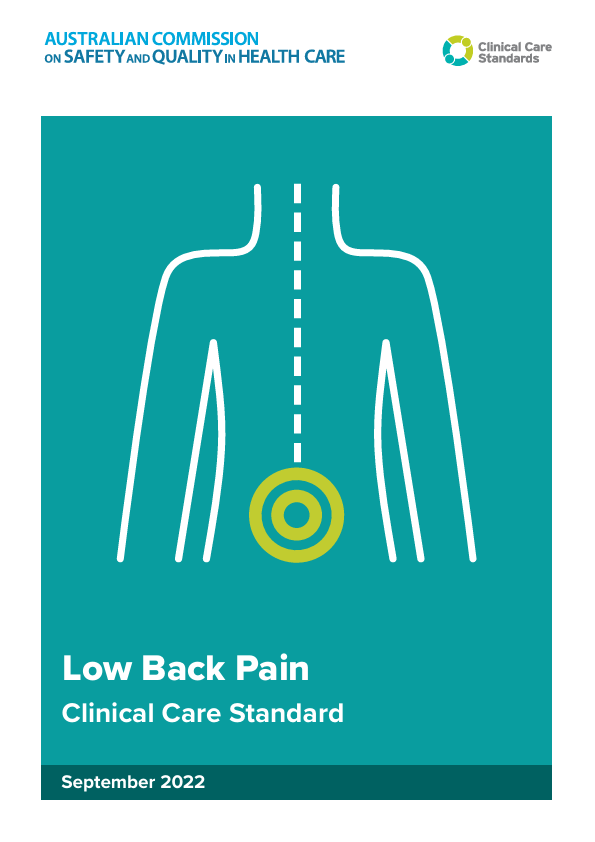
Learn more about recommended books and journals.
Guide index
 Library > Library guides > Training & exams > Pain medicine training
Library > Library guides > Training & exams > Pain medicine training
How to access e-books
 Use your ANZCA college ID (or staff username) and password to access library e-resources.
Use your ANZCA college ID (or staff username) and password to access library e-resources.
 Having trouble logging into e-resources? Try emptying your browser cache, closing and reopening your browser and trying again.
Having trouble logging into e-resources? Try emptying your browser cache, closing and reopening your browser and trying again.
 Forgotten your ANZCA password? Try resetting your password using the "Forgot Password?" link and/or messaging the "Technical support" via the college contact form
Forgotten your ANZCA password? Try resetting your password using the "Forgot Password?" link and/or messaging the "Technical support" via the college contact form
 Can't find your book online? Borrow a print copy or request a chapter via our article request service
Can't find your book online? Borrow a print copy or request a chapter via our article request service
 Experiencing difficulties, or need help accessing e-books? Contact the Library
Experiencing difficulties, or need help accessing e-books? Contact the Library
 For further information about searching and accessing e-books, see the E-books guide
For further information about searching and accessing e-books, see the E-books guide
Key texts
 Faculty of Pain Medicine: Training Handbook
by
Faculty of Pain Medicine: Training Handbook
by
 Pain Medicine Training Program Curriculum
by
The purpose of the curriculum is to define the required learning, teaching and assessment of the FPM training program.
Pain Medicine Training Program Curriculum
by
The purpose of the curriculum is to define the required learning, teaching and assessment of the FPM training program.
 By-law 4: Faculty of Pain Medicine Training program
by
By-law 4: Faculty of Pain Medicine Training program
by
 Acute Pain Management: Scientific Evidence, 5e
by
Acute Pain Management: Scientific Evidence covers a wide range of clinical topics, combining a review of the best available evidence for acute pain management with current clinical and expert practice.
Acute Pain Management: Scientific Evidence, 5e
by
Acute Pain Management: Scientific Evidence covers a wide range of clinical topics, combining a review of the best available evidence for acute pain management with current clinical and expert practice.

Recommended texts
 Complex Regional Pain Syndrome: Practical Diagnostic and Treatment Guidelines, 5e
by
Abstract
There have been some modest recent advancements in the research of Complex Regional Pain Syndrome, yet the amount and quality of the work in this complicated multifactorial disease remains low (with some notable exceptions; e.g., the recent work on the dorsal root ganglion stimulation). The semi-systematic (though in some cases narrative) approach to review is necessary so that we might treat our patients while waiting for "better research." This semi-systematic review was conducted by experts in the field, (deliberately) some of whom are promising young researchers supplemented by the experience of "elder statesman" researchers, who all mention the system they have used to examine the literature. What we found is generally low- to medium-quality research with small numbers of subjects; however, there are some recent exceptions to this. The primary reason for this paucity of research is the fact that this is a rare disease, and it is very difficult to acquire a sufficient sample size for statistical significance using traditional statistical approaches. Several larger trials have failed, probably due to using the broad general diagnostic criteria (the "Budapest" criteria) in a multifactorial/multi-mechanism disease. Responsive subsets can often be identified in these larger trials, but not sufficient to achieve statistically significant results in the general diagnostic grouping. This being the case the authors have necessarily included data from less compelling protocols, including trials such as case series and even in some instances case reports/empirical information. In the humanitarian spirit of treating our often desperate patients with this rare syndrome, without great evidence, we must take what data we can find (as in this work) and tailor a treatment regime for each patient.
Complex Regional Pain Syndrome: Practical Diagnostic and Treatment Guidelines, 5e
by
Abstract
There have been some modest recent advancements in the research of Complex Regional Pain Syndrome, yet the amount and quality of the work in this complicated multifactorial disease remains low (with some notable exceptions; e.g., the recent work on the dorsal root ganglion stimulation). The semi-systematic (though in some cases narrative) approach to review is necessary so that we might treat our patients while waiting for "better research." This semi-systematic review was conducted by experts in the field, (deliberately) some of whom are promising young researchers supplemented by the experience of "elder statesman" researchers, who all mention the system they have used to examine the literature. What we found is generally low- to medium-quality research with small numbers of subjects; however, there are some recent exceptions to this. The primary reason for this paucity of research is the fact that this is a rare disease, and it is very difficult to acquire a sufficient sample size for statistical significance using traditional statistical approaches. Several larger trials have failed, probably due to using the broad general diagnostic criteria (the "Budapest" criteria) in a multifactorial/multi-mechanism disease. Responsive subsets can often be identified in these larger trials, but not sufficient to achieve statistically significant results in the general diagnostic grouping. This being the case the authors have necessarily included data from less compelling protocols, including trials such as case series and even in some instances case reports/empirical information. In the humanitarian spirit of treating our often desperate patients with this rare syndrome, without great evidence, we must take what data we can find (as in this work) and tailor a treatment regime for each patient.
 An Introduction to Aboriginal and Torres Strait Islander Health Cultural Protocols and Perspectives
by
This document provides a guide to appropriate and respectful behaviour with Aboriginal and Torres Strait Islander people. It is intended to give RACGP members and staff background information and guidance on Aboriginal and Torres Strait Islander perspectives, along with an understanding of important protocols and other relevant cultural issues. It can be used to guide the RACGP’s overall engagement with Aboriginal and Torres Strait Islander people, communities and organisations in the improvement of their health and wellbeing.
An Introduction to Aboriginal and Torres Strait Islander Health Cultural Protocols and Perspectives
by
This document provides a guide to appropriate and respectful behaviour with Aboriginal and Torres Strait Islander people. It is intended to give RACGP members and staff background information and guidance on Aboriginal and Torres Strait Islander perspectives, along with an understanding of important protocols and other relevant cultural issues. It can be used to guide the RACGP’s overall engagement with Aboriginal and Torres Strait Islander people, communities and organisations in the improvement of their health and wellbeing.
 Low Back Pain: Clinical Care Standard
by
The Low Back Pain Clinical Care Standard aims to improve the early assessment, management, review and appropriate referral of people with this common health condition.
Low Back Pain: Clinical Care Standard
by
The Low Back Pain Clinical Care Standard aims to improve the early assessment, management, review and appropriate referral of people with this common health condition.
 Patient-centred care : improving quality and safety through partnerships with patients and consumers.
by
Patient-centred care : improving quality and safety through partnerships with patients and consumers.
by
 Pain 2010 - An Updated Review: Refresher Course Syllabus
by
Pain 2010 – An Updated Review: Refresher Course Syllabus, based on sessions held at the 13th World Congress on Pain, 2010, in Montréal, covers pain research and treatment. Includes techniques (imaging, genetics, pain models), treatments (interventional, psychological, pharmacological), disorders (cancer pain, neuropathic pain, musculoskeletal pain, CRPS, orofacial pain, postoperative pain, abdominal/pelvic pain, back pain, paediatric pain), and drug development.
Pain 2010 - An Updated Review: Refresher Course Syllabus
by
Pain 2010 – An Updated Review: Refresher Course Syllabus, based on sessions held at the 13th World Congress on Pain, 2010, in Montréal, covers pain research and treatment. Includes techniques (imaging, genetics, pain models), treatments (interventional, psychological, pharmacological), disorders (cancer pain, neuropathic pain, musculoskeletal pain, CRPS, orofacial pain, postoperative pain, abdominal/pelvic pain, back pain, paediatric pain), and drug development.
Texts available as part of the *online* DSM Library are listed below.
 DSM-5-TR® Clinical Cases
by
DSM-5-TR Clinical Cases clarifies and discusses psychiatric diagnosis with a particular focus on how diagnoses have evolved from DSM-5. Designed for teachers, students, and clinicians, this book presents a broad range of patient vignettes that cover the diagnostic waterfront.
DSM-5-TR® Clinical Cases
by
DSM-5-TR Clinical Cases clarifies and discusses psychiatric diagnosis with a particular focus on how diagnoses have evolved from DSM-5. Designed for teachers, students, and clinicians, this book presents a broad range of patient vignettes that cover the diagnostic waterfront.
 DSM-5-TR® Handbook of Differential Diagnosis
by
The DSM-5-TR Handbook of Differential Diagnosis is the preeminent guide to differential diagnosis for both clinicians and students learning psychiatric diagnosis. Fully updated to reflect the recent Diagnostic and Statistical Manual of Mental Disorders, 5e, Text Revision (DSM-5-TR), this handbook includes two newly developed diagnostic trees (for dissociative symptoms and repetitive pathological behaviours). This indispensable guide offers a rich selection of diagnostic lenses through which to consider symptomatic presentations, grounded in the latest research and standards of practice. The clinician must have empathy, listening skills, the ability to identify symptoms and contextualize them, and a familiarity with the body of knowledge represented by DSM-5. The handbook offers an assortment of approaches to differential diagnosis, and a number of features designed to benefit clinicians in the exam room.
DSM-5-TR® Handbook of Differential Diagnosis
by
The DSM-5-TR Handbook of Differential Diagnosis is the preeminent guide to differential diagnosis for both clinicians and students learning psychiatric diagnosis. Fully updated to reflect the recent Diagnostic and Statistical Manual of Mental Disorders, 5e, Text Revision (DSM-5-TR), this handbook includes two newly developed diagnostic trees (for dissociative symptoms and repetitive pathological behaviours). This indispensable guide offers a rich selection of diagnostic lenses through which to consider symptomatic presentations, grounded in the latest research and standards of practice. The clinician must have empathy, listening skills, the ability to identify symptoms and contextualize them, and a familiarity with the body of knowledge represented by DSM-5. The handbook offers an assortment of approaches to differential diagnosis, and a number of features designed to benefit clinicians in the exam room.
Access anywhere
 Learn more about how to access ANZCA full-text resources whilst searching the web.
Learn more about how to access ANZCA full-text resources whilst searching the web.
It is possible to access ANZCA library full-text resources outside the library via such services as Google Scholar and by utilising browser extensions like LibKey that allow you to link to the full-text when a citation appears on a web site (ie: PubMed/Wikipedia).
 Need help prepping for your exams? Try the Exam Preparation guide.
Need help prepping for your exams? Try the Exam Preparation guide.
 Want to test your knowledge/access BJA Education online exam content? Check out our Self-assessment Tools guide.
Want to test your knowledge/access BJA Education online exam content? Check out our Self-assessment Tools guide.
 Looking for our key pain medicine-related e-books? See the the Pain medicine basics list
Looking for our key pain medicine-related e-books? See the the Pain medicine basics list
Recommended journals are listed below. For a complete list of key anaesthesia, pain medicine, intensive care medicine, emergency medicine and medical education journals, see the library Journals page.






Quick links
About ANZCA
Copyright © Australian and New Zealand College of Anaesthetists.